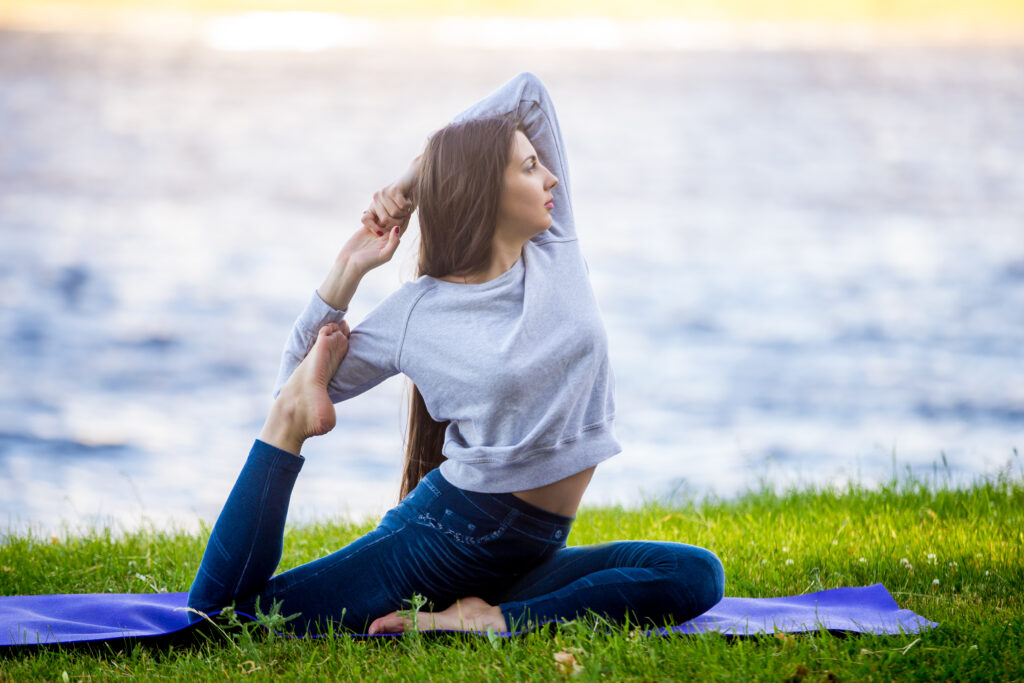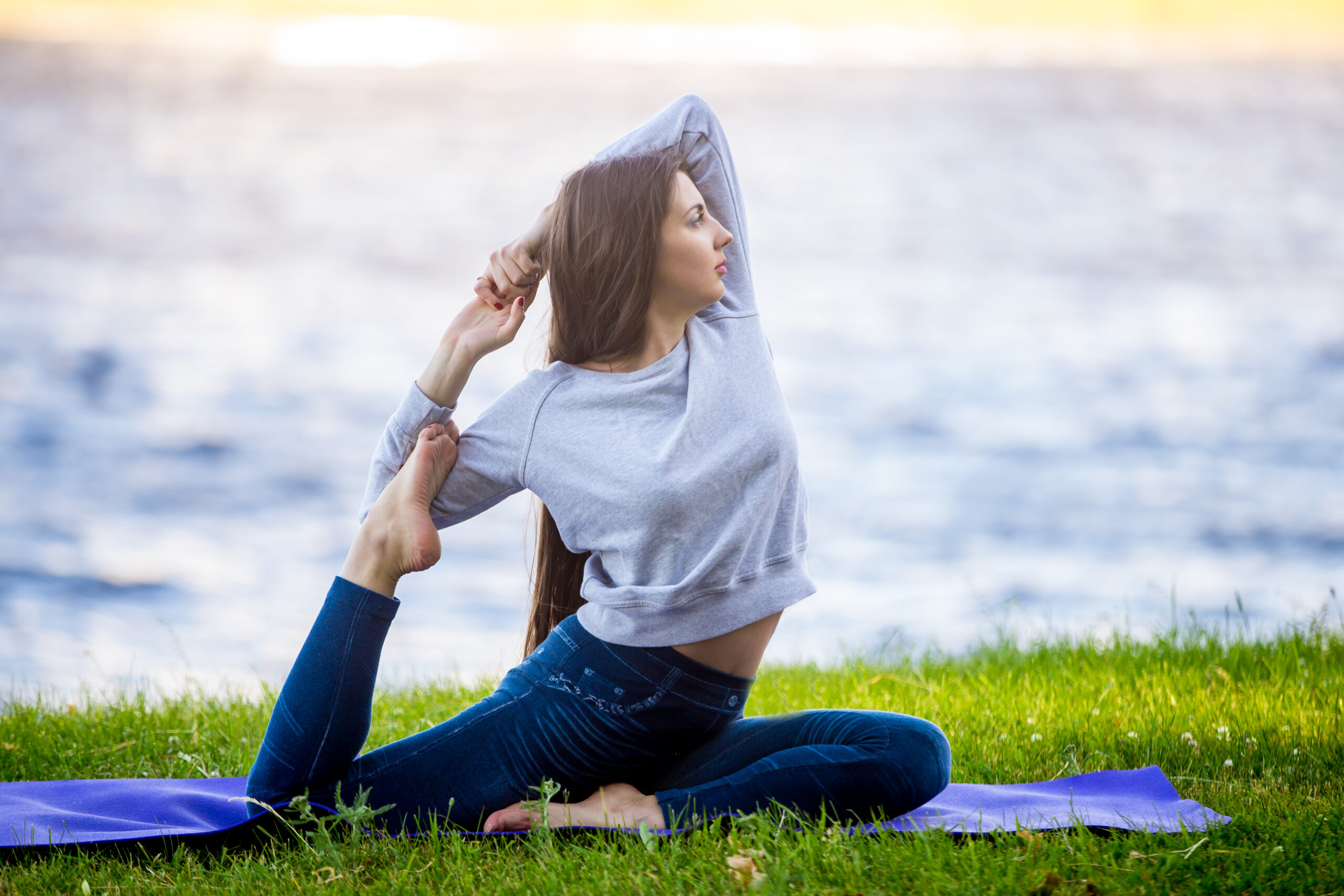Outline of the Article
- Introduction to Yoga
- Understanding Yoga for Wellness
- The Connection between Yoga and Wellness
- Physical Benefits of Yoga
- Mental Benefits of Yoga
- Incorporating Yoga into Daily Routine
- Setting Realistic Goals
- Finding the Right Type of Yoga
- Yoga Poses for Overall Wellness
- Standing Poses
- Seated Poses
- Supine Poses
- Pranayama (Breathing Exercises)
- Mindfulness and Meditation
- Techniques for Mindfulness
- Benefits of Meditation for Wellness
- Yoga Retreats and Wellness Tourism
- Exploring Retreat Options
- Benefits of Wellness Tourism
- Overcoming Challenges in Yoga Practice
- Dealing with Physical Limitations
- Addressing Mental Blocks
- Integrating Yoga with Other Wellness Practices
- Nutrition and Yoga
- Sleep and Yoga
- Yoga for Special Populations
- Yoga for Seniors
- Yoga for Children
- Yoga for Pregnant Women
- Overcoming Myths and Misconceptions about Yoga
- The Role of Yoga Teachers and Instructors
- Personal Testimonials and Success Stories
- Resources for Further Learning
- Conclusion: Embracing Yoga for Holistic Wellness
Introduction to Yoga
In recent years, yoga has emerged as more than just a physical exercise; it has become a holistic lifestyle choice for many individuals seeking wellness. Rooted in ancient Indian tradition, yoga encompasses physical postures, breathwork, mindfulness, and meditation.

Understanding Yoga for Wellness
Wellness is a state of complete physical, mental, and social well-being, encompassing more than just the absence of illness. It emphasizes proactive measures to maintain health and vitality.
The Connection between Yoga and Wellness
Physical Benefits of Yoga
Yoga for welllness improves flexibility, strength, and balance. It can alleviate chronic pain, promote better posture, and enhance overall physical health.
Mental Benefits of Yoga
Practicing yoga for wellness reduces stress, anxiety, and depression. It promotes relaxation, improves mood, and enhances mental clarity and focus.
Yoga into Daily Routine Incorporating
Setting Realistic Goals
Start with small yoga for Wellness , achievable goals and gradually increase intensity and duration as your practice progresses.
Finding the Right Type of Yoga
Explore various styles such as Hatha, Vinyasa, or Yin yoga to find what resonates best with your body and preferences.
Yoga Poses for Overall Wellness
Standing Poses
Poses like Mountain Pose (Tadasana) and Warrior Poses (Virabhadrasana) build strength and improve posture.
Seated Poses
Seated Forward Bend (Paschimottanasana) and Half Lord of the Fishes (Ardha Matsyendrasana) enhance flexibility and digestion.
Supine Poses
Corpse Pose (Savasana) and Bridge Pose (Setu Bandhasana) promote relaxation and release tension in the body.
Pranayama (Breathing Exercises)
Breathwork techniques like Alternate Nostril Breathing (Nadi Shodhana) calm the mind and regulate emotions.
Mindfulness and Meditation
Techniques for Mindfulness
Yoga for wellness practice present-moment awareness during yoga sessions and throughout daily activities.
Benefits of Meditation for Wellness
Meditation cultivates inner peace, reduces stress, and fosters a deeper connection with oneself and others.
Yoga Retreats and Wellness Tourism
Exploring Retreat Options
Yoga retreats offer immersive experiences in serene locations, allowing participants to deepen their practice and rejuvenate their body and mind.
Benefits of Wellness Tourism
Yoga for wellness tourism combines travel with activities like yoga, spa treatments, and healthy eating, promoting overall well-being and relaxation.
Overcoming Challenges in Yoga Practice
Dealing with Physical Limitations
Modify poses or use props to accommodate injuries or physical limitations, focusing on safe and mindful movement.
Addressing Mental Blocks
Yoga for wellness practice self-compassion and patience when faced with doubts or distractions during yoga sessions.
Integrating Yoga with Other Wellness Practices
Nutrition and Yoga
Adopting a balanced diet complements the benefits of yoga, nourishing the body and supporting overall health.
Sleep and Yoga
Establishing a bedtime routine with relaxation techniques like yoga nidra promotes restful sleep and enhances well-being.
Yoga for Special Populations
Yoga for Seniors
Gentle yoga poses and modifications cater to the needs of older adults, promoting mobility and joint health.
Yoga for Children
Child-friendly yoga activities improve focus, coordination, and emotional regulation in young practitioners.
Yoga for Pregnant Women
Prenatal yoga supports the physical and emotional well-being of expectant mothers, preparing them for childbirth and motherhood.
Overcoming Myths and Misconceptions about Yoga
Dispelling common misconceptions about yoga encourages more people to embrace its benefits and experience wellness firsthand.
The Role of Yoga Teachers and Instructors
Qualified instructors guide practitioners safely through yoga sessions, offering support, encouragement, and expert guidance.
Personal Testimonials and Success Stories
Real-life accounts of individuals who have experienced transformation through yoga inspire others to embark on their wellness journey.
Resources for Further Learning
Books, websites, and online courses provide valuable information and guidance for beginners and seasoned practitioners alike.
Conclusion: Embracing Yoga for Holistic Wellness
Yoga offers a multifaceted approach to wellness, addressing physical, mental, and emotional needs. By integrating yoga into daily life and exploring its diverse benefits, individuals can cultivate holistic well-being and live more vibrant, fulfilling lives.
FAQs
Is yoga suitable for beginners?
Yes, yoga welcomes practitioners of all levels, including beginners. Begin with amateur well disposed classes and steadily progress at your own speed.
Can yoga help with weight loss?
While yoga primarily focuses on overall well-being, certain styles like power yoga or hot yoga can aid in weight management by increasing metabolism and promoting calorie burn.
What equipment do I need for yoga?
Basic yoga equipment includes a yoga mat, comfortable clothing, and possibly props like blocks, straps, or bolsters for support and alignment.
Can yoga help with stress relief?
Yes, yoga is renowned for its stress-relieving benefits. Incorporating breathwork, meditation, and relaxation techniques into your practice can effectively reduce stress levels and promote inner peace.


1 thought on “Yoga for Wellness 2024”